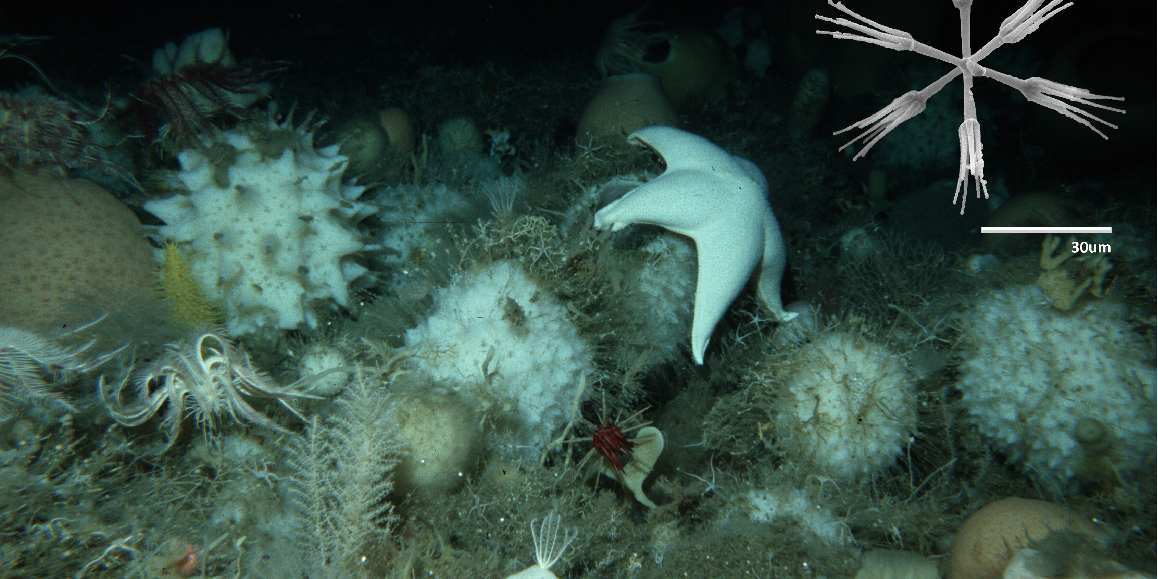Antarctica, renowned for its icy landscapes and unique wildlife, harbors a surprise beneath its frigid waters – the colossal sea sponge. Discovered in 2016, this massive sponge challenges preconceived notions about life in extreme environments and opens a window into the remarkable adaptations of Antarctic marine life. In this article, we delve into the depths of this discovery, exploring the implications for marine biology, conservation, and potential pharmaceutical applications. The colossal sea sponge of Antarctica opens new avenues for scientific exploration.
The Discovery
In 2016, marine biologists exploring the waters of Antarctica’s Weddell Sea made a startling discovery – a sea sponge of colossal proportions. Measuring approximately the size of a minivan, this giant sponge was found attached to the seafloor, defying the conventional expectations of the limited size and complexity of life in such cold and dark waters.
Implications for Extreme Adaptations
The discovery of the colossal sea sponge challenges the traditional understanding of the limits of life in extreme environments. Antarctica’s marine ecosystems are characterized by sub-zero temperatures, high pressure, and limited sunlight, conditions that were previously thought to restrict the size and complexity of marine organisms. The ability of the colossal sea sponge to thrive in such harsh conditions highlights the incredible adaptability of Antarctic marine life.
Insights into Antarctic Marine Ecosystems
Studying the colossal sea sponge provides scientists with a unique opportunity to understand the dynamics of Antarctic marine ecosystems. These sponges play a crucial role in filtering water and providing habitat for various microorganisms. By unraveling the ecological relationships and behaviors of these giant sponges, researchers gain insights into the delicate balance of life in one of the world’s most extreme environments.
Biodiversity and Conservation
The discovery of such a colossal sea sponge underscores the importance of biodiversity in Antarctica’s marine ecosystems. These sponges contribute to the overall health and stability of the ecosystem, and their unique adaptations make them valuable indicators of environmental conditions. Understanding the biodiversity of Antarctic waters is vital for conservation efforts, as it allows scientists to monitor and protect these fragile ecosystems in the face of climate change and human activities.
Potential Pharmaceutical Applications
Beyond its ecological significance, the colossal sea sponge holds potential promise for pharmaceutical applications. Sponges, in general, are known to produce a variety of bioactive compounds, some of which have demonstrated anti-cancer, anti-inflammatory, and antibiotic properties. The extreme conditions of Antarctica may have led to the development of unique compounds in the colossal sea sponge, making it a fascinating subject for bioprospecting and the search for novel pharmaceutical agents.
Scientific Exploration Challenges
Studying marine life in Antarctica poses unique challenges due to the harsh environmental conditions. Researchers face difficulties in reaching and exploring the underwater habitats, requiring specialized equipment and technology. The discovery of the colossal sea sponge highlights the importance of advancements in underwater exploration tools and techniques, enabling scientists to unveil the mysteries of Antarctica’s marine life.
Conservation Concerns
As Antarctica’s climate undergoes rapid changes, driven by global warming, the delicate balance of its ecosystems is at risk. Understanding the adaptations and ecological roles of species like the colossal sea sponge becomes crucial for effective conservation strategies. Preserving the biodiversity of Antarctic waters is not only important for the region itself but also for the global scientific community, as it contributes to our understanding of life in extreme environments.
Educational Significance
The discovery of the colossal sea sponge serves as a captivating story for educational outreach. It engages the public in the wonders of Antarctic marine life, fostering appreciation for the resilience and adaptability of organisms in the face of challenging conditions. By sharing these discoveries, scientists contribute to a broader awareness of the importance of preserving the unique and fragile ecosystems of Antarctica.
The colossal sea sponge of Antarctica stands as a testament to the resilience and adaptability of life in extreme environments. Its discovery opens new avenues for scientific exploration, offering insights into Antarctic marine ecosystems, biodiversity, and potential applications in pharmaceutical research. As we continue to unravel the mysteries of Antarctica’s underwater world, each discovery brings us closer to understanding the intricacies of life on Earth and the challenges these organisms face in a rapidly changing climate. The colossal sea sponge of Antarctica is a topic we certainly will hear again from. Do you like things about Antarctica? Such as mysteries or thrillers? Read the first chapter of Arctic Masons here or buy Arctic Record on Amazon, give it a try.






